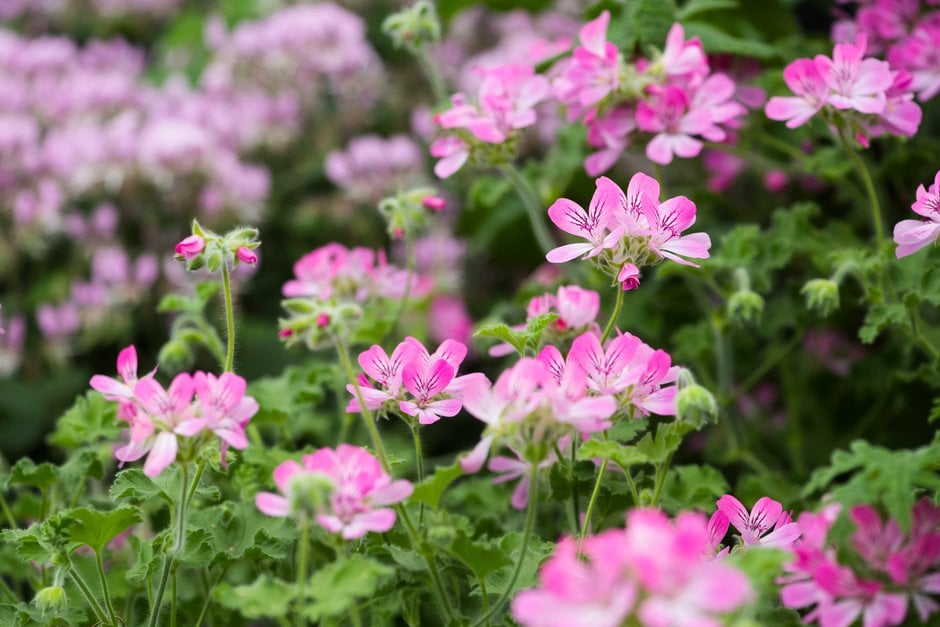Pelargonium 'Pink Capricorn' (Sc)
geranium 'Pink Capricorn'
A compact, bushy to slightly-spreading, evergreen perennial to 45cm high. Three-lobed, grey-green, wrinkled leaves are rose-scented and upright stems bear small clusters of mauve-pink flowers, with white eyes and darker veining, from late spring into autumn
Size
Ultimate height
0.1–0.5 metresTime to ultimate height
1–2 yearsUltimate spread
0.1–0.5 metresGrowing conditions
Moisture
Well–drainedpH
Alkaline, NeutralColour & scent
| Stem | Flower | Foliage | Fruit | |
| Spring | Purple Pink | Green Grey Silver | ||
|---|---|---|---|---|
| Summer | Purple Pink | Green Grey Silver | ||
| Autumn | Purple Pink | Green Grey Silver | ||
| Winter | Green Grey Silver |
Position
- Full sun
Aspect
South–facing or West–facing
Exposure
ShelteredDrought resistance
Yes Hardiness
H1CBotanical details
- Family
- Geraniaceae
- Native to GB / Ireland
- No
- Foliage
- Evergreen
- Habit
- Bushy
- Genus
Pelargonium can be perennials, sub-shrubs or shrubs, sometimes succulent and mostly evergreen, with palmately lobed or pinnately divided leaves and clusters of slightly irregular, 5-petalled flowers
- Name status
Accepted
- Horticultural Group
- Scented-leaved pelargoniums are evergreen shrubs or perennials with strongly aromatic foliage and small, single flowers in shades of pink, purple or white
How to grow
Cultivation
Grow in neutral or alkaline, well-drained, moderately fertile soil in full sun. Lift outdoor plants and keep in frost-free, well-lit conditions over winter. See pelargonium cultivation
Propagation
Propagate by softwood cuttings in spring and summer
Suggested planting locations and garden types
- City and courtyard gardens
- Patio and container plants
- Mediterranean climate plants
- Cottage and informal garden
Pruning
Deadhead regularly and cut back in spring as required
Pests
May be susceptible to glasshouse whitefly, glasshouse leafhopper, aphids, vine weevil and root mealybug
Diseases
Can suffer from grey moulds, pelargonium rust and Pelargonium virus
Love gardening
Sign up to receive regular gardening tips, inspiration, offers and more
View our Privacy Policy
Get involved
The Royal Horticultural Society is the UK’s leading gardening charity. We aim to enrich everyone’s life through plants, and make the UK a greener and more beautiful place.
